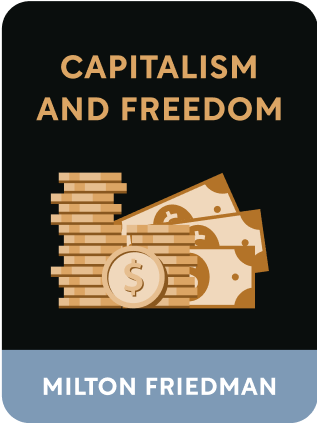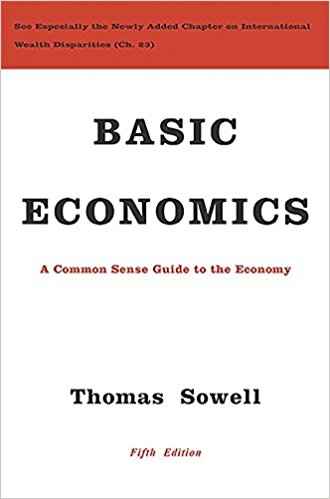

This article gives you a glimpse of what you can learn with Shortform. Shortform has the world’s best guides to 1000+ nonfiction books, plus other resources to help you accelerate your learning.
Want to learn faster and get smarter? Sign up for a free trial here .
Are you on the fence about capitalism? What are the advantages and disadvantages of capitalism?
Capitalism is an economic system where resources and firms are privately owned without government intervention. There is an ongoing debate between critics and supporters of capitalism because of its many advantages and disadvantages.
Below, we’ll look at why capitalism is a heavily debated topic around the world.
The Top 4 Advantages of Capitalism
Capitalism is based on the idea that individuals and companies have rights over the production of goods and services. Countries like New Zealand, Australia, Switzerland, and Canada have capitalist economies. What do these countries and their people gain from living in a capitalist society?
Here are the advantages of capitalism that you should know about.
1. Earnings Equal Societal Value
One of the advantages of capitalism is that you earn more based on what your work is worth to society. In Capitalism and Freedom, Milton Friedman says the fairest and most efficient way to allocate resources in a system of voluntary exchange is through payment according to the product. Your compensation is a direct result of the value you create in the economy through your labor (the work you perform for which you are paid in wages and tips) and your capital (the productive assets you own, like land or machinery).
Outcomes are unequal because human beings all have different endowments of energy, talent, and capital. Some jobs are more unpleasant, entail more risk, or require longer hours than others—because fewer people will wish to do such jobs, they tend to be more highly compensated. Those who avoid such jobs tend to receive alternative compensation in the form of greater job security or more leisure time. Presumably, these individuals place greater value on such non-monetary rewards.
2. Greater Opportunity for Upward Mobility
Contrary to the views of anti-capitalists, advanced capitalist countries have less inequality than underdeveloped countries or those with legal caste systems.
Moreover, ownership of property represents a far smaller share of national income in capitalist countries than it does in underdeveloped or non-capitalist societies. In advanced capitalist societies, wages earned through labor represent a far greater share of national income. That’s no coincidence. Labor is far more productive in such societies. Thus, labor provides workers with greater opportunities and earning power.
The record of capitalism has shown it to be highly successful at raising the standard of living for the vast majority of people living under it. Through efficient mass production, modern capitalism gives the majority of people access to those goods and services that were historically only available to the very wealthy.
Capitalism, unlike a socialist or caste system, also creates the possibility of upward mobility. Your position in the wealth hierarchy can change and is not established by law or custom.
3. Capitalism Promotes Freedom
In a capitalist society, freedoms are a privilege, without which the accumulation of riches wouldn’t be possible. Think and Grow Rich by Napoleon Hill lists these freedoms:
- Basic freedoms: Freedom of thought; freedom to act; freedom of choice, religion, politics, travel; freedom to choose where to live, whom to marry, and what to eat; equal opportunity.
- Wealth-related freedoms: Freedom to aspire to a higher station in life; freedom to own all the property you can get; freedom to choose your business, profession, and occupation; freedom to provide useful service in return for riches.
Capitalism consists of more than money. It also encompasses groups of organized, intelligent people who come up with new ways to use money that create profits and serve the public. These people include scientists, inventors, educators, analysts, and people with the specialized knowledge to envision and produce new products, services, and inventions. This knowledge benefits hospitals, colleges, and schools; pays for government services for everyone; and builds transportation systems.
Organized capital is responsible for delivering the necessities of life—food, shelter, heat, electricity, and plumbing—at a relatively modest cost. Capitalism rallies the land, machinery, factories, ships, automobiles, and people to deliver your standard of life.
Capitalists are the people who use labor, ingenuity, and people organization to drive progress in society. They have a desire to build new things and provide useful services, and in return earn profits and become rich.
You have an abundant opportunity (freedom) to do the same. But if you want to enjoy riches, you must contribute something to society in return—namely, products or services of value. The riches you receive will be in proportion to the value of what you produce.
If you don’t want to make any effort, you of course have the freedom to live as you choose, with minimal return from society. Wealth doesn’t come without effort—that is the law of economics.
4. Better Than the Alternatives
Though not quite an advantage of capitalism, it may just be a better alternative to other economic systems. Utilitarianism and socialism are attractive prospects, but some experts claim that they don’t value freedom and independence like capitalism does.
Why Utilitarianism Fails
In modern economics, there’s been a shift away from a freedom-focused defense of markets toward a utilitarian one, which focuses on doing the greatest good for the most people.
The utilitarian approach focuses on results—however, Development as Freedom by Amartya Sen advocates focusing equally on results and process. By “process,” Sen refers to a person’s ability to exercise freedom. Let’s look at an example of forced vs. free labor in a utilitarian society as an example.
From a utilitarian perspective that only focuses on the outcome of compensation, forced labor has a higher utility than free labor and is therefore the better option. But, this utilitarian perspective, which analyzes only the results of slavery, overlooks entirely its deprivation of freedom, which every person has reason to value.
By emphasizing its processes, the true cost of forced labor—whether slavery or other forms of bondage—can be fully considered.
Why Socialism Fails
Yuval Noah Harari’s Homo Deus shows how socialism fails people in certain areas of life.
Socialists believe people must focus on the experiences and feelings of others. They view the liberals as self-centered because they justify actions based on personal feelings rather than the feelings of everyone else. According to socialism, peace and prosperity can only be achieved by unifying the people of the world through altruism.
Socialists believe that individual voices matter less than collective voices. Where liberals give weight to the opinions of the voter and the customer, socialists give power to socialist parties and trade unions. While the socialist system is still based on human experiences, it expects people to listen to the wants and needs of the “whole” rather than their desires.
When socialism is taken to the extreme, trade unions or political parties silence those who oppose their ideals through imprisonment or execution. For example, in Stalin’s Soviet Union, enemies of the state were thrown into the Gulag.
The Top 3 Disadvantages of Capitalism
While there are many advantages to capitalism, there are still some downsides. Capitalism arguably leads to monopolies and larger inequality and corrupts freedom-based values that define humanity. Read below for these disadvantages of capitalism in more detail.
1. Capitalism Leads to Monopolies
In some cases, capitalism can lead to markets being dominated by monopolies. Capitalism and Freedom claims that a monopoly occurs when a market for a particular good or service has only one seller. Often, these are technical monopolies, where the production of a particular good or service is dependent on access to an expensive or complex technology that only one firm possesses.
Because they make it impossible for buyers to find an alternative seller, markets dominated by monopolies cannot be considered free. Nevertheless, some markets naturally lend themselves to the formation of monopolies, usually those that involve large startup costs or complex proprietary technology. In the economic history of the United States, railroads and telephones started as monopolies.
Monopolies Raise Prices and Reduce Job Opportunities
In a competitive market, consumers can take prices for granted. They know that they are not being charged outlandish prices leading to high profits for businesses—if this were really the case, competitors will soon arrive and compete the profits down to a rate of return similar elsewhere in the economy.
However, Thomas Sowell says in his book Basic Economics that monopolies reduce competition, control prices, and thus distort markets. The monopolist would earn a rate of return necessary to attract the capital required, but no competition arises to drive down prices.
The real harm of monopolies is not consumers paying more for goods—within an economy, this is simple redistribution of wealth. Rather, at the higher artificial price, fewer goods are demanded and produced than at a lower market price. Thus, a monopolist produces less output with the same available resources.
For instance, in many cities, the government supports a monopoly on taxicabs by limiting licenses and setting prices. This artificially limits the number of drivers; people who would be willing to drive at market rates are prevented from doing so, finding other work of lesser value. Furthermore, the higher price of cab rides reduces the number of rides and overall consumer standard of living.
Mistreatment of Employees in Monopolies
The reduced job opportunities are exacerbated by the monopolists’ power to mistreat employees. Yuval Noah Harari explains this unfortunate phenomenon in Sapiens. Capitalists say that if an employer doesn’t reinvest his or her profits and instead makes a profit by lowering wages and increasing work hours, the best employees will leave and find a new employer. This is the safeguard of capitalism, they say.
But in a monopoly, it gets harder for an employee to find a job somewhere else. This allows employees to take advantage of workers, and workers can do little about it.
2. Capitalism Leads to Greater Inequality
In Capital in the Twenty-First Century, Thomas Piketty argues that capitalism, by its nature, generates economic inequality because the rate of return on capital “r” has nearly always exceeded the rate of overall economic growth, “g.” In other words, r>g.
As growth slows down, Piketty warns that inherited wealth will come to account for a much greater share of overall wealth than that earned through work and savings. He writes that this is another indicator of rising inequality, as wealth earned in the past and handed down to rich heirs comes to far eclipse the wealth that people can earn in a lifetime.
The Baby Boomer Inheritance Windfall
Piketty projects that increased mortality rates—as the large and aging baby boomer cohort begins to die off—will contribute significantly to the growth of inherited wealth. The baby boomers, he writes, were the largest generation at the time of their birth—larger than any cohort that preceded them.
Because of their long lifespans relative to previous generations, they had more time to accumulate large stocks of capital—and, as long as the rate of return on capital is greater than the rate of economic growth (r>g), these stocks of wealth will continue to beget still greater wealth relative to economic growth as a whole. As the baby boomers begin to die off en masse, those growing capital stocks will be bequeathed to their heirs—representing a massive windfall of inherited wealth.
What this portends, Piketty warns, is a return to a historical era—like the Gilded Age in the United States, the Victorian Era in Britain, or the Belle Époque in France—in which getting a good education, working hard, saving, and investing wisely all count for far less than having the good fortune to be born to wealthy parents.
An Unequal Society Is a Stagnant Society
Piketty argues that such a highly capital-intensive society is incompatible with a dynamic, meritocratic, and innovative economy where it pays to work hard, take risks, and acquire new skills. After all, if income from ownership matters more than income from labor, there’s little incentive to work. This introduces a potentially dangerous feedback loop of inequality: Demographic decline leads to lower rates of economic growth, which leads to a rising capital-to-income ratio, which increases inequality, which reduces incentives to work, which further reduces economic growth, and so on.
In such a society, working for a living is a sucker’s game. Instead, it’s better to be lucky enough to be born into wealth—or, at least to try and marry into wealth.
Capital in the Twenty-First Century
by Thomas Piketty
15 min reading time
20.8k reads
audio version available
3. Markets Corrupt Our Values
Michael J. Sandel’s principal critique of capitalist societies is that the very act of putting certain goods, services, and experiences up for sale corrupts, cheapens, and degrades them.
In What Money Can’t Buy, Sandel writes that market values have migrated out of their traditional economic sphere and intruded into other aspects of life—such as healthcare, education, family, law, justice, and democracy—where they are inappropriate. According to Sandel, the logic of the market—where supply and demand reign supreme above all other moral and ethical concerns—has overtaken older systems of values that held that some parts of the human experience were too precious to be bought and sold as commodities.
The Commercialization Effect
Sandel argues that “fair” market conditions are irrelevant. Even if markets for certain goods, services, and experiences could be designed without inequality or exploitation, simply subjecting them to market conditions alters our attitudes toward them and degrades our collective moral and social well-being—forcing us to view them as mere commodities whose value is reflected in their price instead of having intrinsic, non-monetary value.
According to Sandel, this idea that distributing something through the market diminishes its value was first noted by economist Fred Hirsch, who dubbed it the “commercialization effect.” The commercialization effect is the theory that our feelings about a good or service vary depending on its means of distribution: whether it’s provided for money, or whether it’s free and supplied through goodwill, duty, a mutual exchange, or another reason.
The Dominance of Incentives
Sandel further argues that market-based thinking has corrupted our values by replacing our intrinsic motivations with economic incentive-based motivations. When we act on intrinsic motivations, we do something because it is rewarding and satisfying for its own sake, not because of the promise of some external reward. Sandel writes that replacing intrinsic with extrinsic motivations weakens our connections to one another and makes our society more selfish, individualistic, and, ultimately, fragile.
The Degradation of Virtue
The spread of market-based values into the traditionally non-market sphere has corrupted human virtue. He writes that defenders of free markets treat virtues like altruism, civic pride, charity, and other moral sentiments as valuable—but limited—commodities. Because of their scarcity, they argue, we should limit our collective reliance upon these virtues and instead look to the rational workings of the market to allocate the vast majority of society’s resources. Thus, virtue is something to be rationed and expended only sparingly.
According to Sandel, however, virtues exist independently of the market. To treat them as marketable commodities is to weaken and diminish them. Sandel writes that virtue cannot be bought, sold, traded, hoarded, rationed, or manufactured out of nothing. Rather, it is cultivated within society through repetition on a mass scale. When we rely less upon moral, social, and civic virtues, we don’t “preserve” our stocks of them—rather, their very disuse depletes them.
Final Words
There are both advantages and disadvantages to living in a capitalist society. Many countries thrive because of the free market, while others find that different economies work better for them. There are also mixed economies, such as the United States, that try to have a balance between capitalism and another economy. No matter what, not every economy is perfect—even capitalism.
Does the good of capitalism outweigh the bad? Tell us what you think in the comments below!

Want to fast-track your learning? With Shortform, you’ll gain insights you won't find anywhere else .
Here's what you’ll get when you sign up for Shortform :
- Complicated ideas explained in simple and concise ways
- Smart analysis that connects what you’re reading to other key concepts
- Writing with zero fluff because we know how important your time is














Thanks